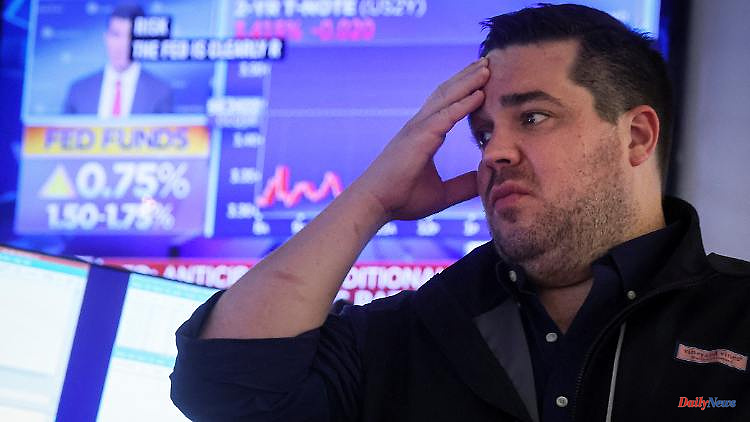The price gains from the previous day after the interest rate hike in the USA are already wasteland just one day later. Other central banks are following the Fed's example and are tightening their monetary policy, which once again makes investors aware of the risks of global inflation. For the first time since the beginning of 2021, the Dow has fallen below the 30,000 mark, with the technology-heavy Nasdaq being hit the hardest.
Investors' initially positive reaction to the sharpest US interest rate hike since 1994 is giving way to disillusionment. The US standard value index Dow Jones closed 2.4 percent lower at 29,927 points - breaking the 30,000 point mark for the first time since the beginning of 2021. The tech-heavy Nasdaq fell 4.1 percent to 10,646 points. The broad S
US Treasury bonds also flew out of the portfolios, taking the yield on 10-year T-bonds back to a recent 11-year high of 3.625 percent. "The Fed rally is fading as investors question the Fed's ability to achieve a soft landing for the economy," said Peter Cardillo, chief economist at investment firm Spartan. Therefore, the stock market has not bottomed out yet. Geir Lode, head of stocks at asset manager Federated Hermes, was also pessimistic about the future prospects. "We see it increasingly likely that it will take a recession and higher unemployment to bring inflation under control." US President Joe Biden, on the other hand, told the AP news agency that a recession is not inevitable. In addition, no country in the world is as well positioned as the USA to be able to overcome inflation.
Against this background, investors parted with technology stocks in particular. The shares of Amazon, Apple, Netflix, Facebook operator Meta and Google parent Alphabet fell by up to 3.9 percent. Higher interest rates will devalue future profits from these high-growth firms.
Credit card investors and payment processors also had to give up due to the growing fears of a recession. American Express, Mastercard, PayPal and Visa stocks fell by up to six percent. Papers from the major banks Bank of America, Citigroup and JPMorgan each fell about 1.7 percent.
Retailers were hit by the prospect of consumers losing their buying spirit. The shares of the department store chain Macy's, the hardware store operator Home Depot and the fashion company Gap slipped by up to 9.6 percent. For similar reasons, investors got out of chip manufacturers such as AMD, Intel or NVidia, whose papers lost up to 8.1 percent. The Philadelphia Semiconductor Index temporarily fell 6.2 percent.
The sell-off mood also gripped cryptocurrencies again. Bitcoin and Ethereum fell around four percent to $20,742 and 8.4 percent to $1,081, respectively. The troubles of Celsius, a provider of cryptocurrency lending, continue to give investors headaches, said Emden Research analyst Timo Emden. They feared that other companies in the industry would be dragged along.
Against this background, stocks from the cryptocurrency sector and companies dealing with the Bitcoin












